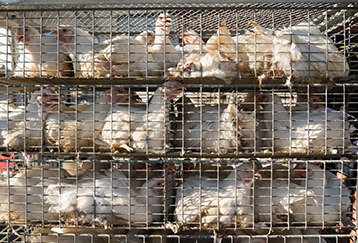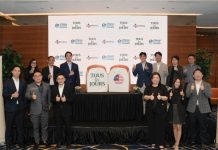
Malaysia’s move to restrict chicken exports may result in temporary disruptions to the supply of chilled chicken in Singapore, the Singapore Food Agency (SFA) said in a statement, noting that frozen chicken options remain available to mitigate the shortfall.
About 34% of Singapore’s chicken imports were from Malaysia last year, with almost all imported as live chickens and slaughtered and chilled in Singapore, the agency said. Other major sources of chicken include Brazil (49 percent) and the United States (12 percent).
In a Facebook post on Monday, SFA said it is closely monitoring the situation on imports from Malaysia and working with stakeholders, such as importers to minimise the impact on chicken supply.
Companies may boost imports of chilled chicken from alternative sources, increase imports of frozen chicken from existing non-Malaysian suppliers, or draw from their stocks of poultry. The SFA encourages consumers to be open to switching choices and to buy only what they need.
Chicken importers in Singapore have expressed concerns about pivoting to alternative sources of chilled and frozen chicken following the announcement by the Malaysian government to impose the ban.
Malaysian Prime Minister Datuk Seri Ismail Sabri Yaakob announced on 23 May the decision to halt the export of up to 3.6 million chickens per month from 1 June, to address the domestic supply shortage.
The secretary of Singapore’s Poultry Merchants’ Association Ma Chin Chew told CNA that there would be delays even if importers were to immediately place orders with suppliers from other countries, such as USA and Brazil.
“It will be hard to find supplies from other countries at such short notice,” said Ma. “Even for countries (like the US and Brazil), they are too far. Even if importers make their bookings right away, the chickens will only arrive two months later.”
Ma, who is also CEO of Hup Heng Poultry Industries, added that he expects business revenue to dip by 60 percent when Malaysia’s export curb is enforced.
James Sim, head of business development for chicken importer Kee Song Food, told CNA that his firm works with mainly farms in Malaysia and “has no intention” of pivoting to sources from other countries.
He noted that the time frame to pivot now was too short and there is uncertainty as to how long the export ban from Malaysia will last. He added that his firm would work closely with SFA on what to do next.
“We do not know how things will turn out, it might be a short-term thing, it might be a month. As of now, we have not made a decision and will wait for direction from SFA,” Sim added.
























